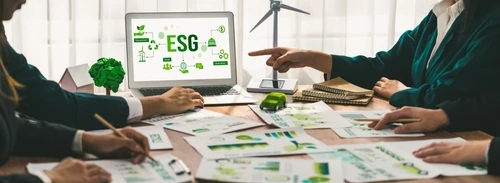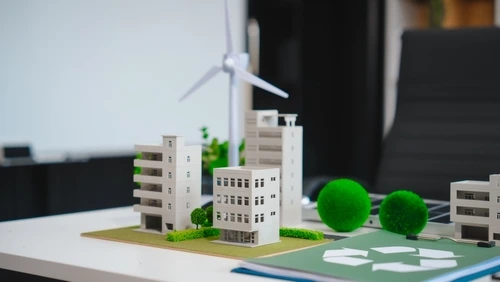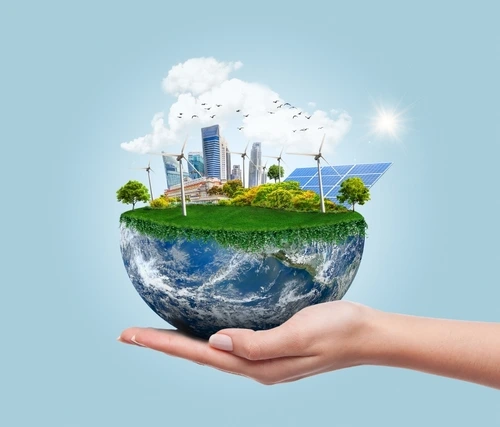Eco-friendly disposal options are essential for reducing your environmental impact and promoting sustainable practices. By embracing methods like recycling, composting, and reusing, you can significantly contribute to waste reduction. One effective way to handle various types of waste, such as construction debris, concrete, household trash, roof shingles, and yard waste, is by using a roll-off dumpster rental.
Using a roll-off dumpster rental allows you to sort and dispose of materials responsibly, ensuring that recyclable items are separated from non-recyclable waste. This method not only helps in waste management but also supports environmental conservation by reducing the amount of waste sent to landfills. For organic waste, composting is another eco-friendly disposal method that turns food scraps and yard trimmings into nutrient-rich soil.
By adopting these eco-friendly disposal techniques, you’re taking significant steps towards reducing your carbon footprint. Implementing such practices can lead to a cleaner environment, decreased landfill usage, and the conservation of natural resources for future generations.
 Eco-friendly disposal methods include composting organic waste, recycling and upcycling materials, and safely disposing of hazardous waste. Advanced waste treatment technologies play a crucial role in managing waste sustainably.
Eco-friendly disposal methods include composting organic waste, recycling and upcycling materials, and safely disposing of hazardous waste. Advanced waste treatment technologies play a crucial role in managing waste sustainably.
 Advancements in eco-friendly disposal are transforming traditional waste management into sustainable and efficient processes. Emerging practices focus on a circular economy, harnessing renewable energy from waste, and fostering global collaboration through supportive policies.
Advancements in eco-friendly disposal are transforming traditional waste management into sustainable and efficient processes. Emerging practices focus on a circular economy, harnessing renewable energy from waste, and fostering global collaboration through supportive policies.
Key Takeaways
- Eco-friendly disposal reduces your environmental impact.
- Roll-off dumpster rentals facilitate responsible waste sorting.
- Composting and recycling are effective for waste management.
Understanding Waste Management
In waste management, different types of waste need varied disposal methods to mitigate environmental impact. This includes distinguishing between hazardous and non-hazardous waste and using various disposal techniques that prioritize sustainability.Types of Waste
Waste comes in several forms, each requiring specific disposal methods. Municipal solid waste includes everyday items like household trash. Organic waste comprises food scraps and yard trimmings. Hazardous waste includes materials like batteries and chemicals. Construction debris covers materials such as concrete and roof shingles. By categorizing waste properly, you can apply more effective and eco-friendly disposal methods, such as recycling or composting.Current Disposal Methods
Eco-friendly disposal methods include recycling, composting, and using roll-off dumpster rentals for large projects like construction debris and household cleanouts. Roll-off dumpsters can handle materials like concrete, roof shingles, and yard waste, ensuring these items are processed in an environmentally responsible manner. Landfills are still prevalent but are increasingly being replaced by sustainable options, such as waste-to-energy facilities, to minimize environmental impact.Challenges in Waste Management
One of the main challenges is the proper classification and disposal of hazardous and non-hazardous waste. Mismanagement can lead to environmental contamination and health risks. Another issue is the limited capacity of landfills, which are rapidly filling up. Effective recycling programs face difficulties, such as contamination of recyclable materials. Educating the public and businesses about waste reduction and proper disposal methods is crucial to overcoming these challenges.The Impact of Improper Disposal
Improper disposal of waste materials such as construction debris, household trash, and yard waste can lead to severe pollution, impacting environmental health and contributing to climate change. Additionally, these practices can have significant economic and social consequences, affecting communities and public resources.Effects on Environment and Health
When waste materials like concrete, roof shingles, and household trash are not disposed of properly, they can significantly impact the environment and health. For example, plastics and chemicals from improper waste disposal can pollute water sources, harming marine life and making water unsafe for humans. This can result in widespread water pollution. Air quality can suffer from the burning of waste, releasing harmful toxins and contributing to respiratory illnesses. Yard waste and organic materials, if left to decompose improperly, produce methane gas, a potent greenhouse gas that exacerbates climate change. Construction debris inappropriately discarded can disrupt natural habitats and contribute to soil contamination. Eco-friendly disposal options, such as using a roll-off dumpster rental, ensure these materials are handled responsibly. This method helps reduce water pollution and improves air quality by preventing the release of harmful substances.Economic and Social Consequences
Improper disposal of waste materials has substantial economic and social costs. Municipalities often bear the burden of cleaning up illegally dumped waste, diverting funds away from other public services. These costs can accumulate, impacting community resources and escalating taxes. Socially, improper waste disposal can degrade living conditions. In areas with significant waste management issues, residents might face increased health risks. This can strain local healthcare systems and reduce the quality of life. By opting for eco-friendly methods, such as using a roll-off dumpster rental for disposing of construction debris, household trash, and other waste types, communities can minimize these negative impacts. This approach supports sustainable waste management, preserves public funds, and enhances the overall well-being of the population.Eco-Friendly Disposal Methods
 Eco-friendly disposal methods include composting organic waste, recycling and upcycling materials, and safely disposing of hazardous waste. Advanced waste treatment technologies play a crucial role in managing waste sustainably.
Eco-friendly disposal methods include composting organic waste, recycling and upcycling materials, and safely disposing of hazardous waste. Advanced waste treatment technologies play a crucial role in managing waste sustainably.
Composting and Organic Recycling
Composting transforms organic waste into nutrient-rich compost, useful for gardens and farms. Materials like yard waste, food scraps, and paper can be composted. Utilize a compost bin or pile to start the process. Ensure proper aeration and moisture levels for efficient decomposition. Organic recycling also includes mulching yard waste, which helps reduce landfill accumulation and fertilizes soil. Benefits:- Reduces landfill use
- Produces natural fertilizer
- Decreases greenhouse gas emissions
Recycling and Upcycling
Recycling involves processing waste to create new products. Materials such as plastic, glass, paper, and metals are recyclable. For construction debris and concrete, a local dumpster rental can help manage large volumes. After collection, these materials can be broken down and reused in new construction projects. Upcycling transforms waste into new items with higher value, like turning old clothes into bags. Key Points:- Conserves natural resources
- Reduces energy consumption
- Limits landfill waste
Hazardous Waste Disposal
Hazardous waste, including certain electronics, batteries, and chemicals, requires special handling to prevent environmental contamination. Drop off hazardous waste at designated facilities where it’s processed safely. Used oil, paint, and fluorescent bulbs should never be disposed of in regular trash. Some communities offer collection days for hazardous materials, aiding in proper disposal. Important Tips:- Identify hazardous items correctly
- Use local disposal facilities
- Follow regulations for safe handling
Advanced Waste Treatment Technologies
Advanced technologies enhance waste disposal efficiency and reduce environmental impact. Techniques like anaerobic digestion convert biodegradable materials into biogas for energy. Waste-to-energy plants burn non-recyclable trash to generate electricity. These methods manage waste sustainably while providing renewable energy sources. Plasma arc gasification, another advanced method, breaks down waste at high temperatures, producing syngas and reducing landfill dependency. Advantages:- Generates renewable energy
- Minimizes landfill usage
- Supports sustainable waste management
Reducing the Carbon Footprint through Waste Management
Reducing the carbon footprint requires targeted strategies in waste management, sustainable business practices, and conscious consumer choices. These areas significantly influence the effectiveness of managing and minimizing greenhouse gas emissions.Waste Reduction Strategies
Implementing effective waste reduction strategies is crucial in minimizing the carbon footprint. Start by adopting the reduce, reuse, and recycle approach. Reducing waste involves choosing minimal packaging options and avoiding single-use items. For example, in construction, materials like concrete and roof shingles can be reused in future projects, significantly cutting down on waste. Using a roll-off dumpster rental can efficiently handle various materials such as construction debris, household trash, and yard waste. These dumpsters are highly useful for segregating recyclables from non-recyclables, ensuring that more waste is repurposed or recycled rather than ending up in landfills.Sustainable Business Practices
Businesses play a pivotal role in reducing their carbon footprint through sustainable practices. Emphasizing the use of renewable energy sources and green technology can dramatically lower energy consumption and emissions. For instance, production firms can adopt methods to minimize waste and implement green practices that reduce both energy usage and waste disposal expenses. Encouraging the use of reusable containers and bags within the business environment can also contribute to waste reduction. Companies can adopt recycling programs for materials like office paper, cardboard, and plastic, further diverting waste from landfills and reducing overall emissions.Consumer Choices and Behaviors
Your choices as a consumer significantly affect waste generation and the carbon footprint. Opt for products with minimal packaging and invest in reusable items like bags and containers. Reducing household trash starts with mindful purchasing decisions—favor goods that are durable and have recyclable or compostable packaging. Using services such as roll-off dumpster rentals for large clean-up projects ensures proper disposal of waste materials like yard waste, household trash, and more. These services can help sort and recycle various types of waste, ensuring eco-friendly disposal and contributing to a more sustainable future.Innovations and Future of Eco-Friendly Disposal
 Advancements in eco-friendly disposal are transforming traditional waste management into sustainable and efficient processes. Emerging practices focus on a circular economy, harnessing renewable energy from waste, and fostering global collaboration through supportive policies.
Advancements in eco-friendly disposal are transforming traditional waste management into sustainable and efficient processes. Emerging practices focus on a circular economy, harnessing renewable energy from waste, and fostering global collaboration through supportive policies.
Toward a Circular Economy
Eco-friendly waste management is increasingly moving toward a circular economy model. This model emphasizes the importance of minimizing waste generation by maintaining and reusing existing materials. For instance, construction debris and concrete can be recycled into new building materials, reducing the need for virgin resources. Household trash often contains materials that can be recycled or repurposed. By sorting and recycling, you not only reduce the amount of waste sent to landfills but also contribute to resource recovery. Yard waste and roof shingles can also be processed into compost or repurposed for other uses in landscaping and construction. Using a roll-off dumpster rental simplifies this process by allowing you to separate materials for appropriate disposal.Renewable Energy and Waste
Waste-to-energy solutions are becoming a cornerstone of sustainable waste disposal systems. These processes convert waste materials into renewable energy sources, providing an eco-friendly alternative to traditional disposal methods. Waste-to-energy plants incinerate non-recyclable waste, generating electricity and heat. By turning organic waste, like food scraps and yard trimmings, into biogas through anaerobic digestion, you can produce a renewable energy source while reducing landfill contributions. This method not only helps in managing organic waste but also aligns with sustainability goals by creating valuable byproducts.Policy and Global Collaboration
Global collaboration and supportive policies play crucial roles in advancing eco-friendly disposal methods. International agreements and national regulations are increasingly focusing on reducing waste and promoting sustainable practices. Policies encouraging recycling, composting, and renewable energy contribute to broader environmental goals. For instance, regulations mandating the recycling of electronic waste ensure that valuable materials like metals and plastics are recovered and reused. Collaborative efforts among countries can share best practices and technologies, improving overall waste management efficiency. Adopting these practices on a larger scale drives innovation and enhances the global impact of eco-friendly disposal systems. By integrating these innovations, you can significantly contribute to a more sustainable future, ensuring that waste is managed in a way that benefits both the environment and society.Frequently Asked Questions
Eco-friendly waste disposal involves various methods, each suited to different types of waste. Understanding these methods can ensure you minimize environmental impact and contribute to a healthier planet.What are the top eco-friendly methods for household waste disposal?
Using methods such as composting kitchen scraps, recycling plastic, glass, and cardboard, and employing roll-off dumpster rental for yard waste can reduce landfill contributions. Donating usable items and opting for reusable containers also play a significant role in household waste management.How can waste management companies implement environmentally friendly practices?
Waste management companies can invest in energy-efficient vehicles for waste collection, promote recycling programs, and use roll-off dumpster rentals to efficiently handle diverse waste streams like construction debris and concrete. Advanced sorting technologies can also increase recycling rates and minimize landfill use.What are the primary differences between traditional and green waste management techniques?
Traditional waste management often relies on landfills and incineration, leading to higher pollution levels. Green waste management focuses on recycling, composting, and the use of roll-off dumpster rentals for specific types of waste, such as roof shingles, to ensure materials are processed or repurposed responsibly.Which waste disposal strategy is considered the most sustainable for long-term environmental health?
Composting organic waste and recycling materials, such as plastics and metals, are vital to long-term sustainability. Roll-off dumpster rentals provide a practical solution for large-scale projects, enabling the efficient collection and sorting of materials like household trash and yard waste.What are the cost-effective and eco-friendly approaches to municipal solid waste management?
Developing municipal composting programs, enhancing recycling facilities, and utilizing roll-off dumpsters for large volumes of construction debris can be both economical and environmentally friendly. These approaches reduce landfill costs and promote the reuse of materials, contributing to a circular economy.How can individuals contribute to eco-friendly waste disposal on a daily basis?
You can separate recyclables from general waste, utilize compost bins for organic waste, and opt for reusable products. Using roll-off dumpster rentals for home renovation projects ensures that construction materials, such as concrete and roof shingles, are disposed of in an eco-friendly manner.RECENT BLOGS
 A Homeowner’s Guide to Flash Flood Preparation, Cleanup, and Long-Term Protection
A Homeowner’s Guide to Flash Flood Preparation, Cleanup, and Long-Term Protection
Date: May 27 ,2025
 Everything You Need to Know About Garbage Bin Rental: Sizes, Costs, and Practical Tips for Every Project
Everything You Need to Know About Garbage Bin Rental: Sizes, Costs, and Practical Tips for Every Project
Date: May 14 ,2025
 Safe Disposal Methods for Refrigerators: Recycling, Donation, and Removal Options
Safe Disposal Methods for Refrigerators: Recycling, Donation, and Removal Options
Date: April 29 ,2025
Our Reviews
LATEST BLOGS








